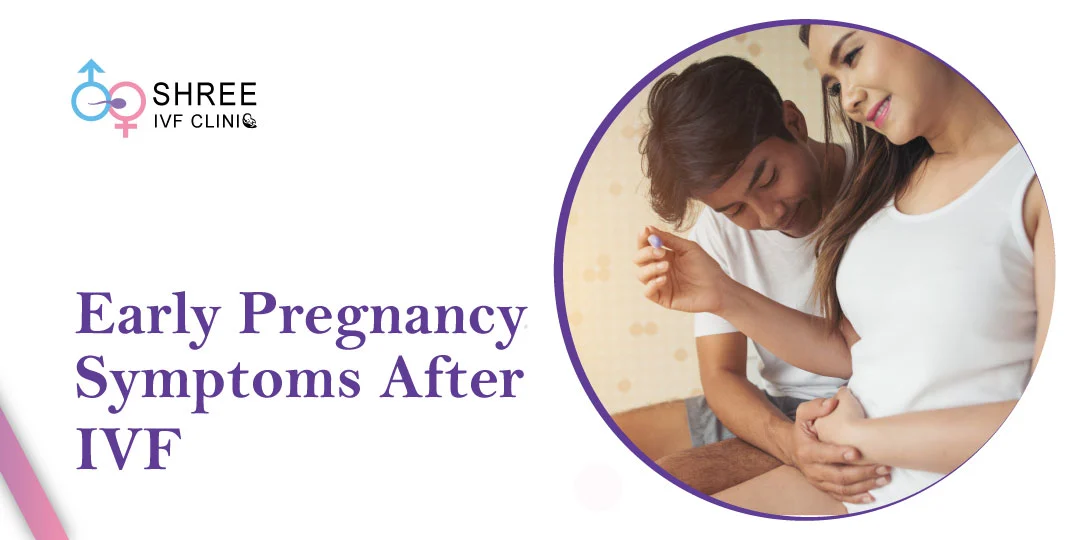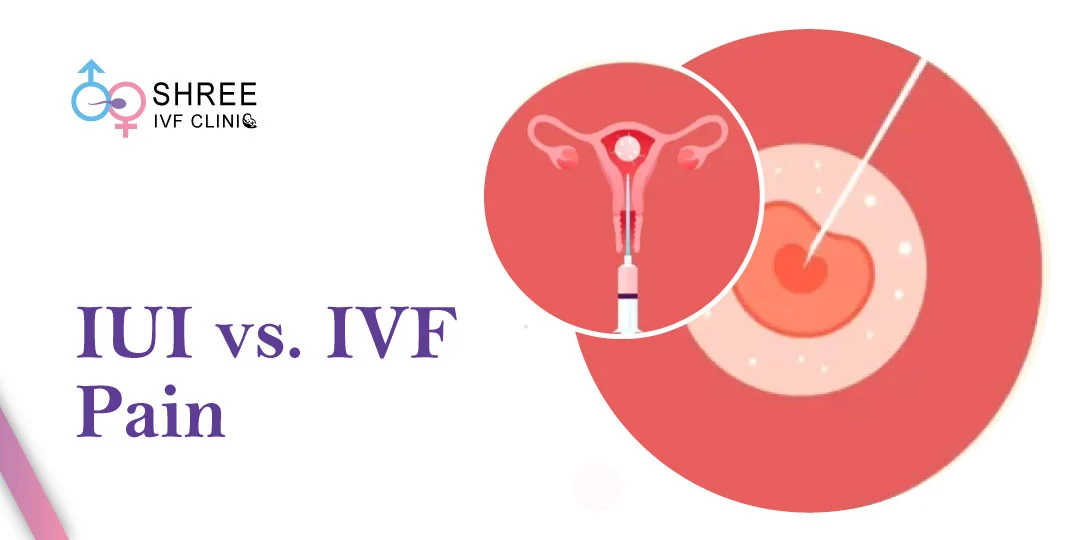Symptoms of Pregnancy After Embryo Transfer
UPDATED ON 24 JUN. 2023
Embryo transfer is an important part of the IVF process, where doctors place embryos into the uterus to help create a pregnancy. Patients often wait nervously for signs that it’s working.
This simple guide will talk about different symptoms after an embryo transfer, including changes in body temperature. We’ll also discuss if it’s normal to have no symptoms and compare fresh versus frozen embryo transfers.

AUTHOR
Dr Jay Mehta
Scientific Director & IVF Specialist with 10+ years of experience
TREATMENT
GET IN TOUCH ON
Also, we’ll give a list of possible symptoms to watch for and remind you to talk to your fertility specialist in Mumbai if needed.
Our goal is to help you feel more confident during this emotional time and improve your chances of having a successful IVF experience.
Positive Signs After Embryo Transfer
Positive signs after an embryo transfer are symptoms that may indicate successful implantation and pregnancy. Some of these signs include:
– Implantation Bleeding :
Light spotting or bleeding may occur when the embryo implants itself into the uterine lining. This typically happens around 6-10 days after the embryo transfer.
– Cramping :
Mild cramping or discomfort in the lower abdomen can be another sign of successful implantation. It’s important to note that some cramping is normal, but if the pain becomes severe or is accompanied by heavy bleeding, it’s essential to consult a gastroenterologist.
– Changes in Basal Body Temperature :
An increase in basal body temperature (BBT) can be an early sign of pregnancy. If you’ve been tracking your BBT and notice a sustained temperature rise after the embryo transfer, it could be a positive indication.
– Breast Tenderness :
Hormonal changes during early pregnancy can cause breast tenderness or swelling, similar to what some women experience before their menstrual period.
– Fatigue :
Increased levels of the hormone progesterone during early pregnancy can cause tiredness and fatigue.
– Increased Sensitivity to Smells :
Some pregnant women may experience heightened sensitivity to certain odors due to hormonal changes.
– Nausea or Morning Sickness :
Nausea or vomiting, often referred to as morning sickness, can be another early sign of pregnancy, although not all women experience it.
– Missed Period :
If you miss your expected menstrual period after an embryo transfer, it may be a strong indicator of pregnancy.
It’s important to remember that these symptoms can vary from person to person and might not always guarantee a pregnancy.
The most reliable way to confirm a pregnancy after an embryo transfer is through a blood test for human chorionic gonadotropin (hCG) levels, which your healthcare professional will typically order around 10-12 days after the transfer.
Is It Normal To Have No Symptoms After an Embryo Transfer?
Yes, it is normal for some patients to have no symptoms after an embryo transfer.
The absence of noticeable symptoms does not necessarily indicate a failed implantation or unsuccessful pregnancy.
Every individual’s body responds differently to the process, and some may not experience any early signs of pregnancy.
It is also important to remember that the symptoms of early pregnancy can be quite similar to premenstrual symptoms, which can make it challenging to accurately identify a positive outcome based solely on symptoms.
The most reliable method to confirm a pregnancy after an embryo transfer is through a blood test for human chorionic gonadotropin (hCG) levels, which your gynecologiest will typically order around 10-12 days after the transfer. This test provides a more definitive answer than relying on physical symptoms alone.
So,
It is perfectly normal to have no symptoms after an embryo transfer, and patients should not be discouraged if they do not experience any early signs of pregnancy.
Patience and communication with your doctor are key during this waiting period.

4,790+
379K+
” Every individual and couple’s journey is unique, and
finding the right solutions tailored to their specific
circumstances can make all the difference “
Takeaway
In conclusion, the symptoms after an embryo transfer, whether fresh or frozen, can provide some insight into the success of the implantation and potential pregnancy.
However, it’s important to remember that individual experiences may vary, and the presence or absence of symptoms is not a definitive indicator of the outcome.
Some patients might experience noticeable symptoms, while others may have none at all. During this emotionally charged period, patience and communication with your fertility specialist is crucial.
AUTHOR
Dr Jay Mehta
Scientific Director & IVF Specialist with 10+ years of experience
TREATMENT
CALL US 24/7 FOR ANY HELP
GET IN TOUCH ON
Share Article on
Recommended Reading
What Are the Side Effects of IVF?
Know the side effects of IVF, from mild pain to hormonal changes, and get expert advice as you start your fertility journey.
After IVF Transfer Pregnancy Symptoms
Learn about early pregnancy signs after embryo transfer, including cramping, spotting or light bleeding, fatigue, breast tenderness, and nausea.
Which is More Painful: IUI or IVF?
Why is IVF generally more painful than IUI? Discover the expert pain management techniques that can help make your experience more comfortable




